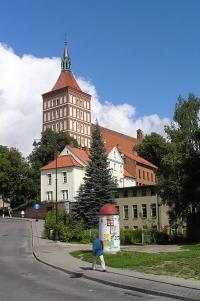And I have always been saying: every man, every generation should go through something like that for at least a month and a half, then it would be a different world, different people They would respect this piece of bread, they would respect each other, they would live in peace
She was born in 1925 in Rybaki. She was a daughter of Rozalia and Johannes Meik. She graduated from primary school in Orzechów. In February 1945, after entry of Russians to her village, she was hiding with her family in the forest. From her home village, she was transported to Insterburg via Olsztynek and Gryźlin, (now Czerniachowsk in Kaliningrad Oblast). She was waiting in the barracks for being transported to Germany. There were lots of diseases. She was suffering from typhus and diphtheria. Soon, in 1945 she was transported to Wittenberg. The journey took 23 days and the conditions of travelling were very tough. Maria Popławska got to Roslau (Upper Franconia). There she got job in a restaurant of Emil Schulz where she cooked and did the cleaning. She spent 1.5 year there and after that, through Berlin, she came back her home village. In 1948 a family of Maria Popławska bought a house and land and settled in Nowa Wieś. She got married (her husband was born in 1911) and had 3 children (the first one was born in 1949).
